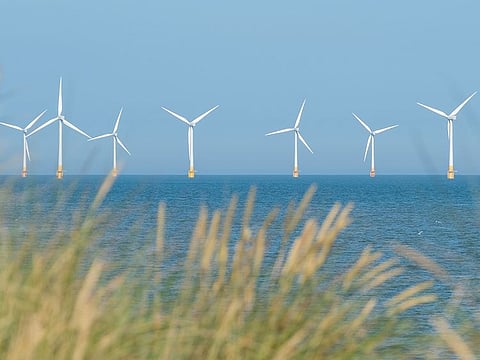Western economies back to that old slogan of cutting investments into oil
All evidence points to need for staggered transition to renewables

At a time when the world’s need for various energy sources is increasing, energy policies in consuming countries are taking a course with multiple twists, further adding to the crisis rather than contributing to mitigating it.
This partially explains the sharp fluctuations in energy prices arising from traders’ confusion with conflicting approaches to energy production policies. It is important to refer to the International Energy Agency’s recent report, which calls for reducing funding to fossil energy sources, such as oil and gas.
This was in response to Western economies’ approach at reducing reliance on hydrocarbons and increase reliance on clean renewable energy, such as solar and wind. There is no disagreement on the importance of such a shift to preserve the environment and reduce climate degradation. But it just as crucial to know how to achieve this goal.
The main point of contention is between the member states of the International Energy Agency and OPEC+. The first group tries to accelerate the replacement process as soon as possible, regardless of the ability to supply the required needs for the transition to renewable energy, which explains the confusion surrounding their policies.
Three years ago, a program was developed to eradicate the use of gasoline-powered automobiles in Europe by 2035, an approach that has lately been deemed to be practically impossible and prompting Germany to abandon the designated timetable. Other European countries have opposed this approach. Meanwhile, China has established an achievable practical goal of increasing EV sales to 50 per cent by 2030.
Germany shut down the final three nuclear power reactors last month, while other EU countries, such as France, still rely on nuclear power for 75 per cent of their electricity production.
On the other hand, the OPEC+ countries agree with this approach, but advocate a gradual process to spare the global economy further crises, as the transition process requires major preparations, a longer period for the switch, and massive investments that many countries do not have. Further, there are some impediments to accelerating the transition to clean energy sources.
Chasing those raw materials
Aside from investments required for the transition, the development of renewable energy sources needs raw materials such as copper, lithium, graphite and nickel. These are required in quantities that current mines, a majority of which are located in countries such as China, Australia and Chile and which have their own development priorities. Or like Afghanistan and some African countries suffer from underfunding and instability - obstacles that are not easy to overcome.
There are financial, technological, technical and infrastructural issues that must be overcome, such as the cost of production and periodic maintenance. There are equally important issues related to the protection of the environment and wildlife, which have set off protests in some European countries. This is because wind turbines cause the death of large numbers of birds and require agricultural lands, while solar power plants need vast areas and special care.
These obstacles can, of course, be overcome, but will not happen overnight, which means that associating the importance of developing renewable energy sources with available capabilities is necessary. And must occur gradually to prevent the global economy from spiralling into a cycle of crises that will have an impact on people’s lives and living standards.
Mere slogans by the West
Herein lies the difference between the rational approach adopted by OPEC+ countries and the hasty programmes put together by countries wanting to make change in haste. The latter agenda raises slogan of reducing investments in oil and gas production and adds to the pressure on financing institutions and oil companies not to pump in these investments.
This happens at a time when they are unable to develop alternative energy sources as quickly as traditional energy demand rises, resulting in supply shortages and high prices.
In contrast, oil and gas producing countries are taking two balanced approaches: developing alternative energy sources while also investing in oil and gas production to meet needs. This obviously indicates that they take a pragmatic approach to achieve desired goals.
Dictated by elections
These approaches that will have a significant impact on energy production and prices in the coming period. The first depends on subjective slogans made in response to election requirements in the West.
The other approach is rational and seeks to avoid any shortage of energy sources that may lead to avoidable economic crises. This is an important issue that must be re-evaluated and collaborated on.
Sign up for the Daily Briefing
Get the latest news and updates straight to your inbox
